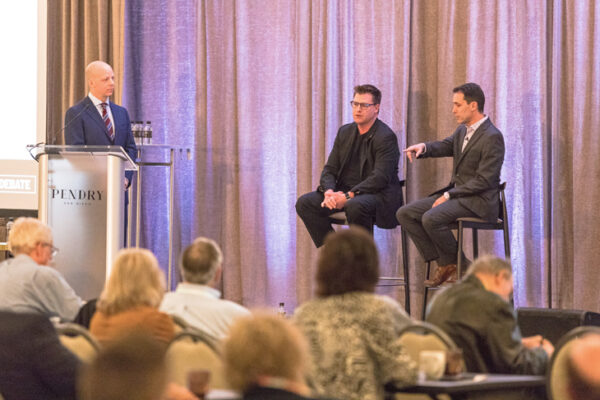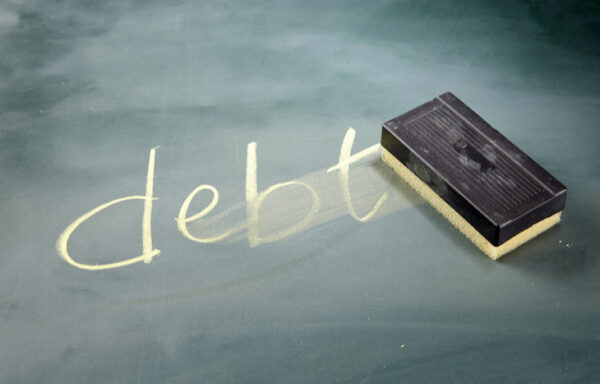How the Rich Keep Getting Richer
- Is capitalism to blame for the fact that some Americans can’t cover an emergency expense, have no retirement savings or have a negative net worth?
- Today, Alex Green reveals the hard truth about this “post-responsibility society.”
In recent columns, I’ve discussed our new “post-responsibility society,” the growing belief that individuals are not really responsible for their behavior and their choices – or the financial outcomes they create.
As someone who’s devoted his professional life to showing ordinary men and women how to achieve and maintain financial independence, I know that belief has profound, negative ramifications.
I also know that adopting an alternative viewpoint can have positive, life-altering ones.
Let’s start with the basic facts…
By almost every measure, our nation has never been more affluent.
Houses have never been larger. Living standards have never been higher. Material comforts and everyday luxuries have never been more widespread.
And a new study by Chicago-based research firm Spectrem reveals that there are a record number of households in the U.S. with a net worth – excluding primary residences – of more than $1 million: 11.8 million.
Yet this is an incomplete picture. Not everyone is getting richer.
A quarter of all working Americans have no retirement savings. Almost 40% of Americans say they don’t have enough money to cover an unexpected $400 expense. And half of American households have a negative net worth.
That means their collective net worth is less than zero. Their debts exceed the value of their assets.
There are diametrically opposed ways of viewing this development…
You can believe that capitalism is broken, the system is rigged and the American economy isn’t working for most Americans.
That’s a tough notion to hang on to in the face of more than 3% GDP growth, unemployment at a 50-year low, household income at record highs, wages growing at the fastest rate in a decade and U.S. household net worth at an all-time record $108.6 trillion.
Yet some people don’t let the facts get in the way of strongly held opinions, especially opinions that excuse their own unwise behavior.
An alternative, reality-based interpretation is that some people haven’t worked enough, haven’t budgeted well (or at all), haven’t lived within their means, haven’t used credit wisely, or haven’t saved and invested.
I’m not saying these folks are to blame entirely.
Too few parents explain the importance of thrift, responsibility and delayed gratification. And most public schools don’t devote nearly enough time to financial literacy.
Many high school graduates lack a basic understanding of compound interest, credit card debt, adjustable-rate mortgages, qualified retirement plans or why we even have a stock market.
(Yet for some reason the folks who stridently oppose school choice and education reform are generally the angriest about economic inequality. Go figure.)
Some feel better believing that their financial circumstances are the result of society’s inequities, capitalism’s shortcomings or problems within the culture.
I’m not ruling these factors out – or suggesting for a moment that everyone is born into equal circumstances or with equal genetic gifts.
But your ability to change society, the culture or “the system” is limited. More to the point, believing that’s what it would take to solve your financial problems is entirely disempowering.
Even if change were coming, it would likely take years. If you belong to a household with a negative net worth, you don’t have that luxury. You need your circumstances to change sooner.
Like, immediately.
Fortunately, there is an excellent way to do that. Some call it “extreme ownership.” I refer to it as “radical responsibility.”
It starts with calling a meeting with the people most responsible for your economic circumstances.
That won’t be difficult. Just go stand in front of the mirror with your partner.
Then make – and follow through with – some hard choices.
It may mean getting vocational training, meeting with a credit counselor, working a second job, applying for a higher-paying position, buying a smaller house, getting rid of a second car, or just spending less and saving more.
You know best how you got into your financial circumstances. (And, yes, you may have had ample help from your “ex” or kids.)
Digging out begins with taking ownership of your bad choices and committing to better ones.
If you wave the white flag instead – and just rail against “the system” – your finances will only continue to sink, along with your self-esteem and peace of mind.
Studies consistently show a strong correlation between personal accountability and household affluence.
Yet millions of Americans believe that government should deliver the material happiness they deserve, sparing them the trouble and discomfort of striving.
Despite the fanciful promises of some candidates running for office, that’s not going to happen.
[adzerk-get-ad zone="245143" size="4"]About Alexander Green
Alexander Green is the Chief Investment Strategist of The Oxford Club, the world’s largest financial fellowship. For 16 years, Alex worked as an investment advisor, research analyst and portfolio manager on Wall Street. After developing his extensive knowledge and achieving financial independence, he retired at the age of 43.
Since then, he has been living “the second half of his life.” He runs The Oxford Communiqué, one of the most highly regarded publications in the industry. He also operates three fast-paced trading services: The Momentum Alert, The Insider Alert and Oxford Microcap Trader. In addition, he writes for Liberty Through Wealth, a free daily e-letter focused on financial freedom.
Alex is also the author of four New York Times bestselling books: The Gone Fishin’ Portfolio: Get Wise, Get Wealthy… and Get On With Your Life; The Secret of Shelter Island: Money and What Matters; Beyond Wealth: The Road Map to a Rich Life; and An Embarrassment of Riches: Tapping Into the World’s Greatest Legacy of Wealth.






